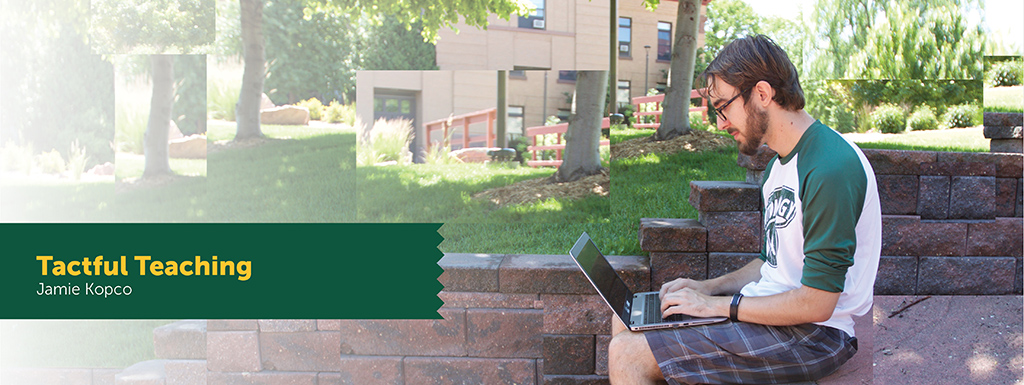Tactful Teaching

If you’ve followed this blog, you’ve probably picked up a general pro-science vibe from me. I think that science is the best tool we have to understand how the world works and can go a long way towards informing how we deal with various problems we may face. Perhaps unsurprisingly, when I come across any articles on social media that talk about the made-up dangers of vaccines or the hoax of climate change, I get a little defensive. I immediately start thinking of a rebuttal. It is very easy to think that the reason someone posted it in the first place is that they simply don’t know what they posted is wrong, and that giving them more information will “correct” their viewpoint. But there can be so much more to the story than a simple lack of knowledge.
THE GREAT WEAKNESS OF SCIENCE
To give a specific example, I’ve got a cousin who sometimes shares links on social media to articles that, in my mind, are not scientifically supported and are inaccurate. Some of them advocate refraining from vaccinating children or `tout the idea that genetically modified organisms (GMOs) are intrinsically bad. My understanding of the science behind either of these technologies is that both have the potential to do tremendous good, and that propagating fears of them is unlikely to lead to beneficial outcomes. If I didn’t know her, I’d be tempted to guess that she is unfamiliar with the scientific evidence I had seen, and I’d try to fill in the knowledge gaps.
But I do know her. I respect her. I know she’s well-educated and smart. Her skepticism of science does not come from ignorance. In a way, science has let her down. She has had the misfortune of dealing with several health complications throughout her life that have prompted her to dig into the science of how to live the healthiest lifestyle she can live. And she didn’t just research it; she lived it. Based on her lifestyle, she probably should be the healthiest person in the family. The results have not lived up to her efforts. She personifies one of the greatest weaknesses of science. If ___ treatment helps 99% of the population, then what about the remaining 1%? If ___ treatment is safe for 99.99% of the population, then what about the remaining 0.01%? In medical science in the U.S., that 0.01% might be 30,000 people. Those people matter. We can’t just discount them as statistical outliers.
There’s not an apparent knowledge gap to fill; we simply disagree on how to interpret data and scientific consensus.
So when she posts something with which I don’t agree, and that I think might actually be harmful, how should I respond? Obviously, I want there to be a positive outcome. I respect her and she’s family, so I don’t want to create animosity between us. The absolute last thing I’d want is for her to feel like I am attacking her. Do I reference some of the scientific data that contradicts what she shared? I’m doubtful that will change her mind; she’s seen it, and she’s not convinced. Do I try to start a discussion of the merits and weaknesses of the ideas she’s sharing? That gets more productive, but as I mentioned before – she’s smart. She knows that science largely operates on averages and “representative samples”, but she’s concerned about the individuals in the entire population. There’s not an apparent knowledge gap to fill; we simply disagree on how to interpret data and scientific consensus. Which brings us back to the question – how should I deal with this? Should I deal with it at all, or just leave it alone? These are questions that I ask myself every time I see a post from her that seems contradictory to the science.
DON’T BE A JERK
Compared to a stranger – a student, someone else on Facebook, etc. – there are some major differences in how I’d approach any discussion of this nature. For one thing, I know her and at least some of her story. She’s not just a name on a class roster or a face amid a crowd of students. And perhaps more importantly, there’s more than just science involved when I talk to her. Whatever we may disagree about, we both want to maintain a good personal family relationship. Contrast that with students, where a teacher may never interact with them again after they finish the class, but the teacher is perfectly OK with that.
The better you know your students, the better you can figure out how to interact with them and what you really need to do as a teacher.
As I was typing this, it occurred to me that I would have responded differently to her last post if it came from someone I wasn’t personally invested in. I would have pointed out what parts of the article were not supported by science, stated some corrections, and left it at that. I probably wouldn’t have invested much time or brainpower in it. But because of who sent it, I put a lot more thought into it. I read it, contemplated responding to it, then decided against it because I didn’t want to come off as a jerk. Then a few more people commented on it, causing it to resurface, and I caved to the temptation to write a response. As you can see, I put enough thought into it that it inspired me to write this blog post.
KNOW YOUR STUDENTS
In conclusion, get to know your students. To some extent, try to figure out where they come from and where they’re going. The better you know your students, the better you can figure out how to interact with them and what you really need to do as a teacher. Do your students need more knowledge, or do they need to refine the knowledge they already have? Do “incorrect” responses come from ignorance of essential information, or a different interpretation of it? And while you’re at it, keep an open mind. Show some empathy, and you can simultaneously develop a better teacher-student relationship, but also get a better understanding of why your students think the way they do.

Jamie Kopco is finishing his Ph.D. in entomology. Among other pedagogical tasks, he is teaching an undergrad/grad class, doing science outreach, and generally trying to foster a sense of curiosity and discovery.